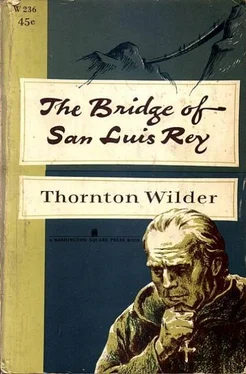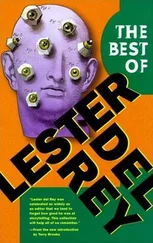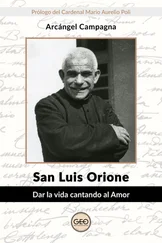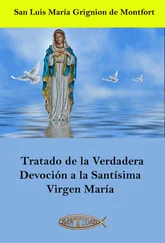Doña María had arranged that any letters arriving from Spain should be brought to her at once by a special messenger. She had travelled slowly from Lima and even now as she sat in the square a boy from her farm ran up and put into her hand a large packet wrapped in parchment and dangling some nuggets of sealing-wax. Slowly she undid the wrappings. With measured stoic gestures she read first an affectionate and jocose note from her son-in-law; then her daughter’s letter. It was full of wounding remarks rather brilliantly said, perhaps said for the sheer virtuosity of giving pain neatly. Each of its phrases found its way through the eyes of the Marquesa, then, carefully wrapped in understanding and forgiveness it sank into her heart. At last she arose, gently dispersed the sympathetic llamas, and with a grave face returned to the shrine.
While Doña María was passing the late afternoon in the Church and in the Square, Pepita was left to prepare their lodging. She showed the porters where to lay down the great wicker hampers and set about unpacking the altar, the brazier, the tapestries and the portraits of Doña Clara. She descended into the kitchen and gave the cook exact instructions as to the preparation of a certain porridge upon which the Marquesa principally subsisted. Then she returned to the rooms and waited. She resolved to write a letter to the Abbess. She hung for a long time over the quill, staring into the distance with trembling lip. She saw the face of Madre María del Pilar, so red and scrubbed, and the wonderful black eyes. She heard her voice as at the close of supper (the orphans sitting with lowered eyes and folded hands) she commented on the events of the day, or as, by candlelight, she stood among the beds of the hospital and announced the theme for meditation during the night. But most clearly of all Pepita remembered the sudden interviews when the Abbess (not daring to wait until the girl was older) had discussed with her the duties of her office. She had talked to Pepita as to an equal. Such speech is troubling and wonderful to an intelligent child and Madre María del Pilar had abused it. She had expanded Pepita’s vision of how she should feel and act beyond the measure of her years. And she had unthinkingly turned upon Pepita the full blaze of her personality, as Jupiter had turned his upon Semele. Pepita was frightened by her sense of insufficiency; she hid it and wept. And then the Abbess had cast the child into the discipline of this long solitude, where Pepita struggled, refusing to let herself believe that she had been abandoned. And now from this strange inn in these strange mountains, where the altitude was making her lightheaded, Pepita longed for the dear presence, the only real thing in her life.
She wrote a letter, all inkstains and incoherence. Then she went downstairs to see about fresh charcoal and to taste, the porridge.
The Marquesa came in and sat down at the table. “I can do no more. What will be, will be,” she whispered. She unbound from her neck amulets of her superstition and dropped them into the glowing brazier. She had a strange sense of having antagonized God by too much prayer and so addressed Him now obliquely. “After all it is in the hands of another. I no longer claim the least influence. What will be, will be.” She sat for a long time, her palms against her cheeks, making a blank of her mind. Her eyes fell on Pepita’s letter. She opened it mechanically and started to read. She had read a full half of it before her attention was aware of the meaning of the words: “ ... but all this is nothing if you like me and wish me to stay with her. I oughtn’t to tell you but every now and then the bad chambermaids lock me up in rooms and steal things and perhaps My Lady will think that I steal them. I hope not. I hope you are well and not having any trouble in the hospital or anywhere. Though I never see you I think of you all the time and I remember what you told me, my dear mother in God. I want to do only what you want, but if you could let me come back for a few days to the convent, but not if you do not wish it. But I am so much alone and not talking to anyone, and everything. Sometimes I do not know whether you have forgotten me and if you could find a minute to write me a little letter or something, I could keep it, but I know how busy you are. . . .”
Doña María read no further. She folded the letter and put it aside. For a moment she was filled with envy: she longed to command another’s soul as completely as this nun was able to do. Most of all she longed to be back in this simplicity of love, to throw off the burden of pride and vanity that hers had always carried. To quiet the tumult in her mind she picked up a book of devotion and tried to fix her attention upon the words. But after a moment she suddenly felt the need to reread the whole letter, to surprise, if possible, the secret of so much felicity.
Pepita returned bringing the supper in her hands, followed by a maid. Doña María watched her over the top of her book as she would have watched a visitor from Heaven. Pepita tiptoed about the room laying the table and whispering directions to her assistant.
“Your supper is ready, My Lady,” she said at last.
“But, my child, you are going to eat with me?” In Lima Pepita generally sat down at the table with her mistress. “I thought you would be tired, My Lady. I had my supper downstairs.”
“She does not wish to eat with me,” thought the Marquesa. “She knows me and has rejected me.”
“Would you like me to read aloud to you while you are eating, My Lady?” asked Pepita, who felt that she had made a mistake.
“No. You may go to bed, if you choose.”
“Thank you, My Lady.”
Doña María had risen and approached the table. With one hand on the back of the chair she said haltingly: “My dear child, I am sending off a letter to Lima in the morning. If you have one you can enclose it with mine.”
“No, I have none,” said Pepita. She added hastily: “I must go downstairs and get you the new charcoal.”
“But, my dear, you have one for ... Madre María del Pilar. Wouldn’t you ...?”
Pepita pretended to be busy over the brazier. “No, I’m not going to send it,” she said. She was aware during the long pause that followed that the Marquesa was staring at her in stupefaction. “I’ve changed my mind.”
“I know she would like a letter from you, Pepita. It would make her very happy. I know.”
Pepita was reddening. She said loudly: “The innkeeper said that there would be some new charcoal ready for you at dark. I’ll tell them to bring it up now.” She glanced hastily at the old woman and saw that she had not ceased from staring at her with great sad inquiring eyes. Pepita felt that these were not things one talked about, but the strange woman seemed to be feeling the matter so strongly that Pepita was willing to concede one more answer: “No, it was a bad letter. It wasn’t a good letter.”
Doña María fairly gasped. “Why, my dear Pepita, I think it was very beautiful. Believe me, I know. No, no; what could have made it a bad letter?”
Pepita frowned, hunting for a word that would close the matter.
“It wasn’t ... it wasn’t ... brave,” she said. And then she would say no more. She carried the letter off into her own room and could be heard tearing it up. Then she got into bed and lay staring into the darkness, still uncomfortable at having talked in such a fashion. And Doña María sat down to her dish amazed.
She had never brought courage to either life or love. Her eyes ransacked her heart. She thought of the amulets and of her beads, her drunkenness ... she thought of her daughter. She remembered the long relationship, crowded with the wreckage of exhumed conversations, of fancied slights, of inopportune confidences, of charges of neglect and exclusion (but she must have been mad that day; she remembered beating upon the table). “But it’s not my fault,” she cried. “It’s not my fault that I was so. It was circumstance. It was the way I was brought up. Tomorrow I begin a new life. Wait and see, oh my child.” At last she cleared away the table and sitting down wrote what she called her first letter, her first stumbling misspelled letter in courage. She remembered with shame that in the previous one she had piteously asked her daughter how much she loved her, and had greedily quoted the few and hesitant endearments that Doña Clara had lately ventured to her. Doña María could not recall those pages, but she could write some new ones, free and generous. No one else has regarded them as stumbling. It is the famous letter LVI, known to the Encyclopedists as her Second Corinthians because of its immortal paragraph about love: “Of the thousands of persons we meet in a lifetime, my child ...” and so on. It was almost dawn when she finished the letter. She opened the door upon her balcony and looked at the great tiers of stars that glittered above the Andes. Throughout the hours of the night, though there had been few to hear it, the whole sky had been loud with the singing of these constellations. Then she took a candle into the next room and looked at Pepita as she slept, and pushed back the damp hair from the girl’s face. “Let me live now,” she whispered. “Let me begin again.”
Читать дальше












